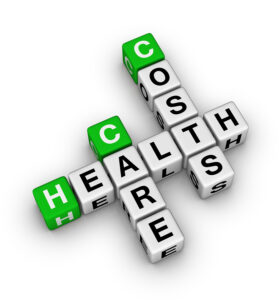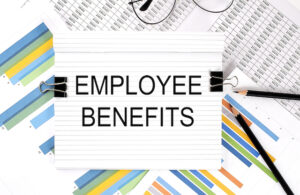LITTLE ROCK, Ark. – Consumers are likely to spend more time planning their next vacation than reviewing their benefit choices during the upcoming open enrollment at work. Why? Most of the time people just don’t know where to start.
“It’s important to spend time reviewing your company’s voluntary benefits options,” said Renee Preslar, communications manager at Transamerica Employee Benefits. “With high-deductible health plans on the rise, supplemental insurance can add value to your benefits portfolio and help you save money on your annual medical expenses.”
How do consumers know what kinds of insurance to consider and what benefit levels to select? This open enrollment season, Transamerica Employee Benefits says consumers should ask themselves 10 questions to help make the choices easier:
- What’s my share of medical costs? Deductibles, copays and coinsurance amounts are on the rise, so be sure to find out what they are before looking at policies designed to help with these and other expenses. An important part of financial planning is understanding what you would have to pay for a costly medical event such as an accident or critical illness.
- What are my out-of-pocket non-medical expenses? Many expenses such as transportation, child care and lost income due to missing work are not covered by your major medical insurance. These non-medical costs can add up quickly.
- Do I want to use my savings for these expenses? Even if there is enough money in the bank to handle them, wouldn’t you rather use your savings for that retirement RV trip or the vacation planned for next year? The costs of supplemental insurance can be far less than those of a medical emergency. For example, purchasing acritical illness policy would pay a lump sum cash benefit after a heart attack, and that money could be used for travel to see a specialist or to cover child care while you focus on recovery.
- How would I make up for lost income if I became disabled? One of the most crucial items to protect is your income. Many employers offer some sort of coverage for long-term disability. Consider what could happen if you can’t work for three to six months due to a back injury. Short-term disability insurance provides a percentage of your pay for a specified period of time that could help with the mortgage – for the home where you’ve planted flowers and made the payment for the car that gets the girls to softball practice.
- What’s my health history? Past problems could indicate a predisposition to other problems and recurrences of similar issues. It’s not fun to think about risks to your health by things like smoking or watching sports on TV versus actually exercising. Whether or not you’re ready to make changes today, you may need medical treatment based on health habits, so it makes sense to get a policy like hospital indemnity insurance, which pays benefits for hospital stays.
- What’s my family medical history? Has anyone in your family had cancer, heart disease or high blood pressure? Consider how cancer insurance or critical illness insurance can help if you’ve inherited certain family illnesses, along with Dad’s interesting nose and Mom’s loud laugh.
- What does my family like to do in our spare time? Playing sports, hiking or spending time at the lake? Some activities carry more risk for injury. If you or your child has an accident, you’ll need to cover increased expenses. Accident insurance pays benefits you can use for medical bills and other out-of-pocket expenses.
- Do I go in for routine eye exams and dental cleanings? Your eyes may be a window to your soul but they can also help detect potential health issues. Plus, protecting your oral health represents a crucial disease-prevention strategy. Vision and dental insurance can be a great value, and make getting retro-chic glasses or teeth cleanings a snap. Consider what you’d spend without one or both of these types of policies and balance that amount against the cost of coverage.
- How does my age affect my health risk factors? Getting older can make insurance even more important. At younger ages, the risk is lower so some types of insurance are more affordable. Take a look at your employer’s group rates—they may be lower than you think.
- Does anyone need my income in the event of my death? Do I have life insurance? Do I have enough life insurance? Group life insurance is competitively priced and offers certain levels of coverage on a guaranteed issue basis.
Asking these questions and checking with your employer about these benefits can help create a clearer picture of your life and supplemental health insurance needs, so you can select the right policies to help protect yourself and your family from life’s curve balls.
About Transamerica : With a history that dates back over 100 years, the Transamerica companies are recognized as leading providers of life insurance, savings and retirement and investment solutions, serving millions of customers throughout the United States. Transamerica works to Transform Tomorrow® for those who entrust its dedicated professionals with their financial needs, helping them take the necessary steps to achieve their long-term goals and aspirations. Transamerica’s corporate headquarters are in Baltimore, Md., with other major operations in Cedar Rapids, Iowa. Transamerica is part of the Aegon group of companies. Aegon is one of the world’s largest providers of life insurance, pension solutions and asset management products, operating in over 25 markets worldwide with some 28,000 employees. For more information visit www.transamerica.com.











